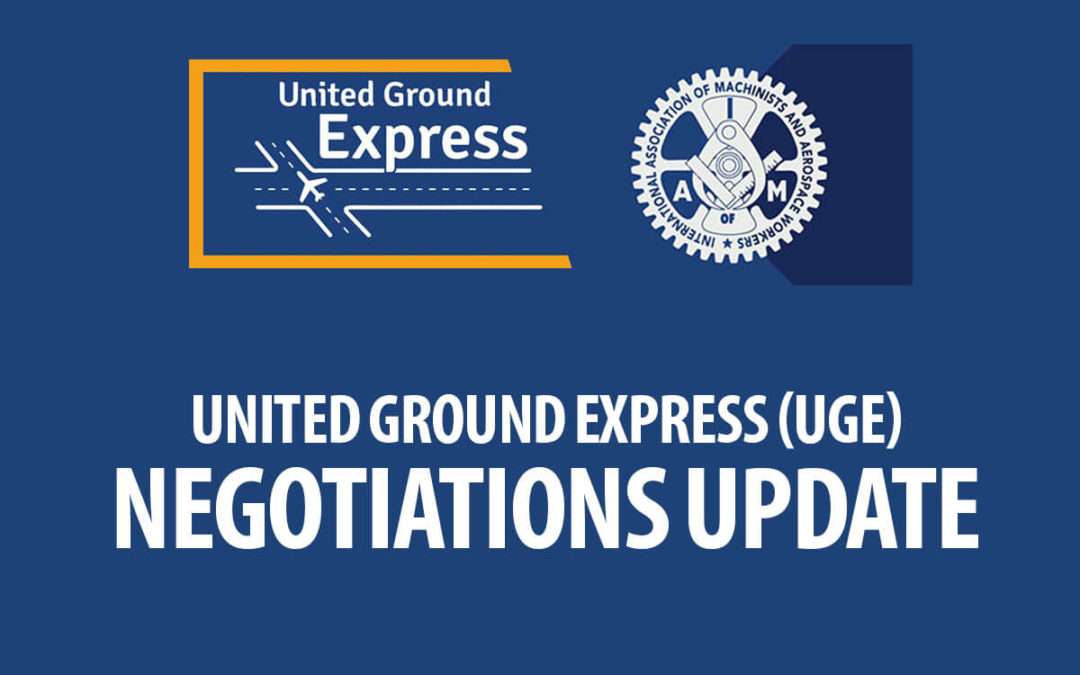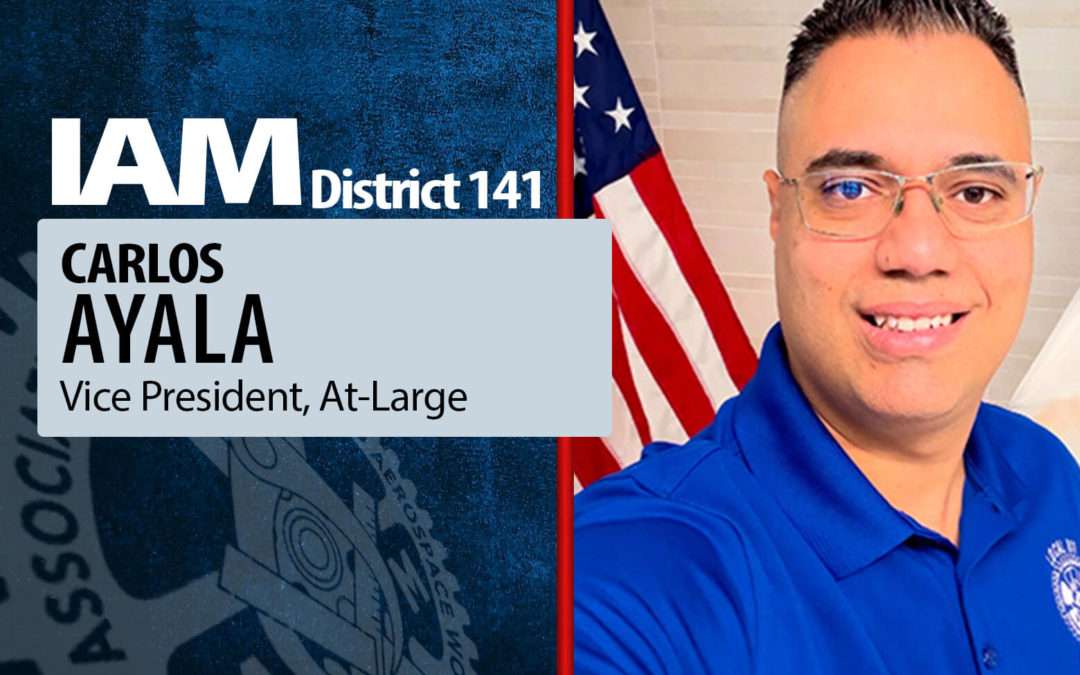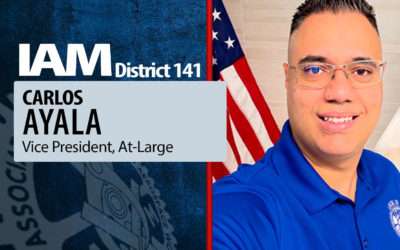
Airline Worker Injuries on Rise
As heatwaves plague the country, few places are hotter than Phoenix. Workers and city officials gathered at Phoenix Sky Harbor on Wednesday to share heat-related health and safety concerns.
Sky Harbor Local Lodge 2559, which represents several hundred Machinists Union members, helped lead the event.
Backed by Phoenix Vice Mayor Yassamin Anasari, airport, and airline workers announced that they had filed a formal OSHA complaint against aviation support services provider Prospect Airport Services for allegedly not ensuring basic worker protections amid Phoenix’s record-high temperatures.
In 2023, Phoenix saw an astounding 31 consecutive days, with temperatures soaring at or over 110 degrees. The record-breaking streak was only one record that was shattered this year. In July, temperatures rose to 119 degrees, according to the National Weather Service, the highest temperature in the city’s history.
The previous record was set back in 1989.
Workers met outside Terminal 4, holding signs and photos depicting Arizona’s extreme heat. One man had an image of a temperature gauge reading 113 degrees. One cabin cleaner said she was recently hospitalized because of the intense heat. “Over the course of the last few months, I’ve experienced nearly every symptom of heat illness,” she told local news outlet AZ Family. “I’ve suffered from extreme fatigue, weakness, headaches, vomiting, muscle cramps, loss of coordination, and nausea,” she said. “Our uniforms only make the heat worse. We often aren’t given access to water to drink on the airplanes while we’re cleaning the cabins. Sometimes I resort to drinking water left over by passengers.”
According to AZ Family, officials said the OSHA complaint aimed to “hold major airlines and their contractors accountable” for workers’ health and safety amid extreme heat.
Phoenix airport workers also demanded Congress pass the “Good Jobs for Good Airports Act” to improve pay and benefits. Employees earned just $13-$14 per hour, some told AZ Family. “Our wages and benefits are a slap in the face after coming into the airport day in and day out to make it possible for these airlines to function,” said Cecilia Ortiz, a lead wheelchair assistant. “We cannot continue to live like this. We cannot continue to be paid poverty wages without quality employer-paid health care and other benefits like paid time off.”
The “Good Jobs for good Airports Act” would increase labor standards for service workers at airports that get federal funding and would apply to the vast majority of all unified workers in the nation. The proposed legislation has the backing of 43 co-sponsors.
According to Senator Ed Markey, the lead sponsor of the bill, the legislation would “provide airport workers with the pay, benefits, and labor standards they deserve after serving on the frontlines of our nation’s aviation system and keeping airports safe through a global pandemic, climate disasters, and peak travel seasons.”
“In the face of ongoing health risks, airport service workers – including cleaners, wheelchair agents, baggage handlers, concessionaires, and security personnel – continue to play an essential role in keeping Americans moving. This legislation would improve job quality for hundreds of thousands of airport service workers – a largely Black, Brown, and immigrant workforce – by setting minimum wage and benefits levels at all major airports that receive federal funding.”
According to OSHA figures released this week, the number of on-the-job injuries at airports declined in 2020 when travel dropped due to the pandemic. However, as flights resumed, injuries rapidly rebounded and are now higher than before the pandemic. On September 1, a tragic accident occurred at Boston Logan Airport when a forklift operator was pinned by a metal beam and killed while servicing a JetBlue flight, highlighting the dangers airport workers continue to face. The agent’s name was not released, but he worked for a JetBlue contractor.
In that incident, authorities reported the 51-year-old forklift operator from Winthrop was working in an outdoor loading area at Terminal C when attempting to drive the lift through a bag service entrance. Tragically, the forklift’s backrest extension was raised at the time, according to Massachusetts State Police.
This safety attachment is designed to protect drivers, but in this case, it led to the operator being fatally pinned against the entrance. The safety extension hit a metal beam intended to prevent vehicles from entering the tunnel if they are too large to drive through safely. But the extension, designed to prevent loads from tipping over and falling onto the forklift operator, caused the forklift to tip, crushing the driver. He died at Logan Hospital later that day.
JetBlue refused to issue a statement immediately following the accident, but the airline’s ‘Code of Conduct’ reads, “Safety always comes first.”
Another OSHA report, released in June, revealed that a failure to follow required safety procedures contributed to the tragic death of Piedmont Airlines customer service agent Courtney Edwards. According to the report, the American Airlines subsidiary did not ensure their ground crew adhered to protocols, resulting in Edwards being pulled into the spinning turbines of a jet engine, instantly killing the 34-year-old ramp agent. The heartbreaking incident highlights the immense importance of airlines enforcing strict safety measures for ramp workers to prevent such accidents that cost lives like Edwards’.
In the wake of the tragic accident, OSHA cited Piedmont Airlines for one serious violation regarding exposing the ground crew to ingestion hazards during aircraft marshaling, wing-walking, and baggage-handling duties. For this violation, OSHA has proposed $15,625 in penalties against Piedmont, an amount set by federal statute. The citation and fine highlight the need for airlines to implement and enforce proper safety protocols to protect ramp workers from harm.
Following the tragic incident, Piedmont released a statement saying that safety was their top priority.
According to Machinists Union Safety Representative Joe D’Eccliss, many of the safety issues airlines are facing can be corrected with better training, lower turnover, and more careerism in the industry.
“Airlines need more workers,” said D’Eccliss. “Short staffing is a major driver of the accident rates we are seeing,.” He also pointed out that injury rates tend to be higher at the contractors that airlines hire to perform work. “Direct-hires at major airlines get more investment from their companies,” and also stated, “Contractors exist to cut corners and costs, and sometimes these cuts include safety.”
David Roderick, District Legislative Director for the Machinists Union, agrees. “The Good Jobs for Good Airports Act” will help raise wages for airline and airport workers, which will help new agents choose airline work as their career,” he said. “An experienced workforce takes a little more money but is more than worth the investment,” he continued. “We also need to fine these companies more and ensure that our union members are treated fairly.”
Related News
UGE Negotiations Update for September 3, 2025
Your negotiating team met with United Ground Express (UGE) management in Chicago last week to continue bargaining your contract. United Ground Express (UGE) Contract Negotiations UpdateSeptember 3, 2025 Dear IAM District 141 UGE Members, Your negotiating team...
Carlos Ayala Appointed IAM District 141 Vice President at Large
Carlos Ayala Appointed IAM District 141 Vice President At-LargeIAM141.org2 September 2025Organizer and leader with nearly two decades of service to members Carlos O. Ayala, a longtime United Airlines Lead Ramp Service Employee at Houston’s Local Lodge 811, has...
United Ground Express Negotiations Update (23 June 2025)
Over the week of June 16—20, our IAM District 141 negotiating team met in Chicago with United Ground Express management. We worked to advance the remaining sections of our first collective-bargaining agreement. We are pleased to report continued forward movement and...
Stay up to date with all the latest news and information from the Machinists Union

Airline Worker Injuries on Rise
September 13, 2023
As heatwaves plague the country, few places are hotter than Phoenix. Workers and city officials gathered at Phoenix Sky Harbor on Wednesday to share heat-related health and safety concerns.
Sky Harbor Local Lodge 2559, which represents several hundred Machinists Union members, helped lead the event.
Backed by Phoenix Vice Mayor Yassamin Anasari, airport, and airline workers announced that they had filed a formal OSHA complaint against aviation support services provider Prospect Airport Services for allegedly not ensuring basic worker protections amid Phoenix’s record-high temperatures.
In 2023, Phoenix saw an astounding 31 consecutive days, with temperatures soaring at or over 110 degrees. The record-breaking streak was only one record that was shattered this year. In July, temperatures rose to 119 degrees, according to the National Weather Service, the highest temperature in the city’s history.
The previous record was set back in 1989.
Workers met outside Terminal 4, holding signs and photos depicting Arizona’s extreme heat. One man had an image of a temperature gauge reading 113 degrees. One cabin cleaner said she was recently hospitalized because of the intense heat. “Over the course of the last few months, I’ve experienced nearly every symptom of heat illness,” she told local news outlet AZ Family. “I’ve suffered from extreme fatigue, weakness, headaches, vomiting, muscle cramps, loss of coordination, and nausea,” she said. “Our uniforms only make the heat worse. We often aren’t given access to water to drink on the airplanes while we’re cleaning the cabins. Sometimes I resort to drinking water left over by passengers.”
According to AZ Family, officials said the OSHA complaint aimed to “hold major airlines and their contractors accountable” for workers’ health and safety amid extreme heat.
Phoenix airport workers also demanded Congress pass the “Good Jobs for Good Airports Act” to improve pay and benefits. Employees earned just $13-$14 per hour, some told AZ Family. “Our wages and benefits are a slap in the face after coming into the airport day in and day out to make it possible for these airlines to function,” said Cecilia Ortiz, a lead wheelchair assistant. “We cannot continue to live like this. We cannot continue to be paid poverty wages without quality employer-paid health care and other benefits like paid time off.”
The “Good Jobs for good Airports Act” would increase labor standards for service workers at airports that get federal funding and would apply to the vast majority of all unified workers in the nation. The proposed legislation has the backing of 43 co-sponsors.
According to Senator Ed Markey, the lead sponsor of the bill, the legislation would “provide airport workers with the pay, benefits, and labor standards they deserve after serving on the frontlines of our nation’s aviation system and keeping airports safe through a global pandemic, climate disasters, and peak travel seasons.”
“In the face of ongoing health risks, airport service workers – including cleaners, wheelchair agents, baggage handlers, concessionaires, and security personnel – continue to play an essential role in keeping Americans moving. This legislation would improve job quality for hundreds of thousands of airport service workers – a largely Black, Brown, and immigrant workforce – by setting minimum wage and benefits levels at all major airports that receive federal funding.”
According to OSHA figures released this week, the number of on-the-job injuries at airports declined in 2020 when travel dropped due to the pandemic. However, as flights resumed, injuries rapidly rebounded and are now higher than before the pandemic. On September 1, a tragic accident occurred at Boston Logan Airport when a forklift operator was pinned by a metal beam and killed while servicing a JetBlue flight, highlighting the dangers airport workers continue to face. The agent’s name was not released, but he worked for a JetBlue contractor.
In that incident, authorities reported the 51-year-old forklift operator from Winthrop was working in an outdoor loading area at Terminal C when attempting to drive the lift through a bag service entrance. Tragically, the forklift’s backrest extension was raised at the time, according to Massachusetts State Police.
This safety attachment is designed to protect drivers, but in this case, it led to the operator being fatally pinned against the entrance. The safety extension hit a metal beam intended to prevent vehicles from entering the tunnel if they are too large to drive through safely. But the extension, designed to prevent loads from tipping over and falling onto the forklift operator, caused the forklift to tip, crushing the driver. He died at Logan Hospital later that day.
JetBlue refused to issue a statement immediately following the accident, but the airline’s ‘Code of Conduct’ reads, “Safety always comes first.”
Another OSHA report, released in June, revealed that a failure to follow required safety procedures contributed to the tragic death of Piedmont Airlines customer service agent Courtney Edwards. According to the report, the American Airlines subsidiary did not ensure their ground crew adhered to protocols, resulting in Edwards being pulled into the spinning turbines of a jet engine, instantly killing the 34-year-old ramp agent. The heartbreaking incident highlights the immense importance of airlines enforcing strict safety measures for ramp workers to prevent such accidents that cost lives like Edwards’.
In the wake of the tragic accident, OSHA cited Piedmont Airlines for one serious violation regarding exposing the ground crew to ingestion hazards during aircraft marshaling, wing-walking, and baggage-handling duties. For this violation, OSHA has proposed $15,625 in penalties against Piedmont, an amount set by federal statute. The citation and fine highlight the need for airlines to implement and enforce proper safety protocols to protect ramp workers from harm.
Following the tragic incident, Piedmont released a statement saying that safety was their top priority.
According to Machinists Union Safety Representative Joe D’Eccliss, many of the safety issues airlines are facing can be corrected with better training, lower turnover, and more careerism in the industry.
“Airlines need more workers,” said D’Eccliss. “Short staffing is a major driver of the accident rates we are seeing,.” He also pointed out that injury rates tend to be higher at the contractors that airlines hire to perform work. “Direct-hires at major airlines get more investment from their companies,” and also stated, “Contractors exist to cut corners and costs, and sometimes these cuts include safety.”
David Roderick, District Legislative Director for the Machinists Union, agrees. “The Good Jobs for Good Airports Act” will help raise wages for airline and airport workers, which will help new agents choose airline work as their career,” he said. “An experienced workforce takes a little more money but is more than worth the investment,” he continued. “We also need to fine these companies more and ensure that our union members are treated fairly.”
Related

UGE Negotiations Update for September 3, 2025
Your negotiating team met with United Ground Express (UGE) management in Chicago last week to continue bargaining your contract. United Ground Express (UGE) Contract Negotiations UpdateSeptember 3, 2025 Dear IAM District 141 UGE Members, Your negotiating team...

Carlos Ayala Appointed IAM District 141 Vice President at Large
Carlos Ayala Appointed IAM District 141 Vice President At-LargeIAM141.org2 September 2025Organizer and leader with nearly two decades of service to members Carlos O. Ayala, a longtime United Airlines Lead Ramp Service Employee at Houston’s Local Lodge 811, has...

United Ground Express Negotiations Update (23 June 2025)
Over the week of June 16—20, our IAM District 141 negotiating team met in Chicago with United Ground Express management. We worked to advance the remaining sections of our first collective-bargaining agreement. We are pleased to report continued forward movement and...




